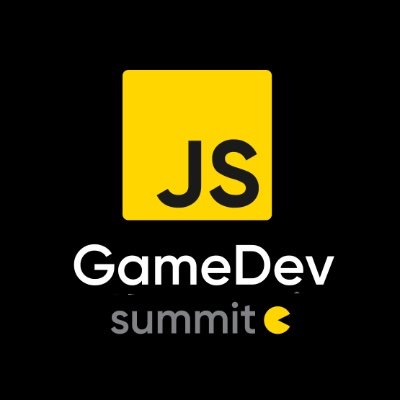1. Introduction to Products and Marketplace
We have kubernetes, object storage, and over 20 locations. We're launching a new location this week. Let's get into the fun stuff like coding, gaming, launching, and deploying. We have optimized cloud compute, object storage, K8s, bare metal, and more coming soon. In the Marketplace, we have over 50 applications, including game servers, e-commerce, and web servers. Specifically for games, we have a variety of game engines and servers, including Minecraft servers like Bedrock, Forge, Paper Spigot, Vanilla, and Minecraft. You can deploy on Vulture in two easy ways.
So we have a lot of cool stuff here. We have kubernetes, we have, you know, we have our object storage, we have over 20 locations. We're launching a new location this week. More on that maybe later today or tomorrow. If you follow us on Twitter you'll be the first one to find out what that location is. I can't say anything right now, though.
So I'll just go here to products. We're not going to be talking too much about all the products. Let's just get into the fun stuff. Coding, gaming, launching, deploying. So we have optimized cloud compute, we have our object storage like I mentioned, our K8s, we have bare metal, and a lot of other things coming soon. So here's our website. Here's all of our locations. We have 24, 25 coming soon.
And if you go over here to Marketplace, this is a big thing that I want to show you in terms of launching a gaming server engine. So there's a couple things that you can do. Let's say that we have a server in house. If you just want to explore Marketplace, we have over 50 applications, 55 and counting. But we have everything from game servers, to e-commerce, to our web servers. Let's say that maybe you wanted to launch a blog or you wanted to monitor something for your database. But let's go to the games, because that's what we're talking about here. So we have a lot of cool game engines and game servers. And that's what all of this is. We have Minecraft servers. And this is growing each week, too. So here's all of the Minecraft servers that we have, for example. Bedrock, Forge, we have Paper Spigot, Vanilla, Minecraft. And to deploy on Vulture, you can deploy in two easy ways. So if you were to sign up for Vulture, and don't sign up yet, because I'm going to give you a cool coupon code to get started with Vulture. But if you wanted to launch something on Vulture, let's say we wanted to launch Minecraft Forge.
2. Deploying Gaming Servers
I would click on Deploy, and it automatically has me set up to my deploy page on the back end. I'm already logged in. I've now launched Minecraft. Another way of deploying a gaming server is by clicking on deploy new server and doing everything from scratch. I can also click on marketplace apps and do a search. Minecraft Forge, 30 hours a month, auto backups. Deploy.
I would click on Deploy, and it kicks me out to my account. And it automatically has me set up to my deploy page on the back end. Now, you won't see this unless you sign up and register. But when you do register, I'm already logged in.
I'm in Philadelphia, so I'll just click on Manhattan. It already has Minecraft chosen for me here. And if I just keep going, general $30 a month server, great. I'll enable automatic backups, that's awesome. IPv6 and I'll press deploy. Just like that, I've now launched Minecraft.
OK. So let's say that I want to... Well, that's still propagating. OK, so another way of deploying a gaming server is I go here and I can click on deploy new server and here I'm just doing everything from scratch. And it's the same layout, it just it gets squished because I moved it in a little bit.
OK, so let me see where's New York. New York, OK. Debian, deploy now. OK, so then up here, instead of clicking on Debian, I'm gonna click on marketplace apps and I can do my search here. And then let's just do, I can't see the button. There we go. It keeps on reshifting because of the zoom. I can't move. Let me see if I can push this up. Yeah, I guess that's fine. All right. So Minecraft Forge, we'll click that. And 30 hours a month again. Auto backups sure. Deploy.
3. Launching Gaming Servers
I'll do IPv6. Deploy now. I showed you two different ways of quickly launching a gaming server on Vultr. If you don't have it, you can launch your own Debian server and SSH into it. Vultr has great documentation on connecting your cloud server to SSH or other tools. Check out our fantastic documentation for easy instructions on getting started in just a couple of minutes.
I'll do IPv6. Deploy now. And that's it.
So just like that, I showed you two different ways of quickly launching a gaming server on Vultr if we already have it. If we don't, there are things that you can do here. For one, you can launch your own Debian server just blank vanilla Debian. And you can SSH into the server yourself. There are a lot of great documents that Vultr has on that. And as I mentioned before, we have our products, but if you wanted to connect your Vultr cloud server to SSH or whatever, we have a lot of great docs. I'll actually throw this in the chat. Our documentation is fantastic. So here's this page here. I usually do things through FTP. If I'm using CyberDuck, you can use PuTTY. You can just SSH into the server using any terminal app or just terminal. So here's great documentation on how to do that. It's really easy. You can get started in just a couple of minutes. So there's this doc here. We have another doc here if you wanted to connect a server. So if you wanted another... Did I...? Is there supposed to be a period at the end there? Does that work with the period at the end of the URL? Hmm. Is this going to work with the period there? Oh, yeah, it does. Okay. I've never noticed that period at the end there. Okay. Well, let me see if I can take that part out. Yeah, there we go. I'll give you the simpler URL. There you go.
4. Introduction to Vulture
The short ones are the same with that one. There's parameters at the end. This is another great doc. You can find all the documentation on Minecraft and other game servers. Vulture is an awesome company with bare metal, cloud infrastructure, and game servers. We have three new products: Optimized Cloud Compute, Normal Cloud Compute, and Bare Metal Servers. We offer AMD and Intel processors, a variety of operating system images, and the ability to upload custom ISOs. We have more than 20 locations and are fully independent.
The short ones are the same with that one. There's parameters at the end. So this is another great doc. And if you wanted to find any of this, you would just go to vulture.com forward slash docs or you can just go to our docs page here at the top banner. So just click on docs and then you're good. And then you're at the resources. You can type in Minecraft and you can find all of the documentation that we have on either Minecraft or a like call of duty server or whatever.
So I'll tell you a little bit about Vulture is going here. This is a little bit of me. Oh, I probably should have introduced myself. My name is Walt Ribero. I'm Vulture's developer advocate. Vulture's an awesome company. We do a lot of great stuff where we have bare metal. As I told you, we launched cloud infrastructure all around the world. We actually got started. People don't don't really know this about us, but we actually got started with Game Servers. So gameservers.com is actually a Vulture product that we're not using that so much now. All of our game servers are hosted on Vulture infrastructure through Vulture.com, through our marketplace where you can just launch through your own server. So all of our gaming stuff, as I mentioned, is on Vulture marketplace and we walk through that. We have three new products. I just want to talk about really quick. We have Optimized Cloud Compute, Normal Cloud Compute, and then our Bare Metal Servers. We have AMD and we have Intel and we even have our images. We have Windows, we have Rocky Linux, we have Debian, we have VZ Linux, we have FreeBSD. There's so much that we have. And if we don't have an image that you want, you can upload your own image. We allow for people to upload custom ISOs, which is an awesome feature here at Vulture. As I mentioned, more than 20 locations. We're fully independent.
5. Introduction to Vulture Marketplace
We have an awesome Kubernetes engine and partnerships with various companies. Vulture is not just about gaming, but also about building the best infrastructure and product. Our intuitive control panel includes load balancers and open-source operating systems. Use the code Git Nation 1.5.0 to get a $150 credit when signing up. For partnerships and becoming a vendor, email partners at Vulture.com. To get started or for general questions, contact info at Vulture.com. Explore our Vulture marketplace and easily launch your own game or app as a snapshot by becoming a vendor.
We have an awesome Kubernetes engine. We have partnerships with everything from Wasabi to Cloudways to Cycle.io. I'm not going to read through all this, but you can get the idea that Vulture is not only just about gaming, but we're about building the best infrastructure and the best product for people that use us.
We have a very intuitive control panel. I just walk you through that. I gave you a quick demo because let's just get right to the fun stuff. We have load balancers. We have our open-source GitHub operating systems. You get it.
So going back here, let me just give you the code really quick. Let's say that you want to build something on Vulture, as I'm talking, you can use Git Nation code, Git Nation 1.5.0 to get started on Vulture. So if you were to go to Vulture.com, I'll put the link in the description here. If you were to go to Vulture.com and you sign up, sign up with this code, Git Nation 1.5.0, and we'll give you a free $150 credit to try Vulture. You can launch game servers, you can launch, you can try K8s and load balancers and whatever you wanted to try. You can try out our documentation, maybe follow a tutorial and get started that way too. If you have to talk to support, you can email support at Vulture.com.
If I'm going to talk about this next is the idea of partnerships and becoming a vendor at Vulture. So if you wanted to partner with Vulture, you would email partners at Vulture.com. Or if you just had general questions on how to get started at Vulture, you would do into at Vulture.com. If you want to get started with a $150 code, when you sign up, when you register, use code... So here we have our Vulture marketplace. Now, if you have your own game that you're building, or your own app or service that you want to launch on to Vulture as a snapshot, so that people can download and install it and get running on Vulture infrastructure, it's really, really easy. Go to Become a Vendor. It's right there at the top. When you go to Vulture.com, forward slash marketplace, you go... Instead of clicking on explore marketplace, you click on Become a Vendor. No. Yeah. So a cache, it's fine. That's fine.
6. Becoming a Vendor and Launching Your Own Game
To become a vendor, register, build your app as a snapshot, launch on Vulture's infrastructure, and promote it. Gaming servers are available on the marketplace. Contact us to launch your own game. Email partners at Vulture.com or fill out the form on the website.
That was pretty funny though. So you click on Become a Vendor. Now to become a vendor is really easy. You would just register. Of course, you would build your app as a snapshot and then launch on Vulture's infrastructure and then you would just promote it. So we not only have gaming servers and so gaming servers aren't just in our DNA, but they're available on marketplace. And if there was something that you wanted to launch on Vulture, your own game, just reach out to us. Become a vendor. There's certain ways that you can do that. You can either email partners at Vulture.com or just go through this form here. Just type in your name, get in touch with us and then someone from the Vulture team will get back to you right away.
7. Launching a Gaming Website
If you wanted to start a gaming website, you can launch anything on Vulture. Let's say you want to launch a Drupal site. I click on Drupal, deploy. And so in here is where I remember reading, a couple days ago when I was preparing for this presentation. It says here, just, you know, when you're deploying your server, this is for a Minecraft server specifically, but, you know, it could be for any game, you just want to make sure that you're picking the right deployment. So here it says at least two gigabytes of memory. So when you're deploying your infrastructure, sometimes you can go for the cheapest one, just for like six bucks more every month. You can click on the two gigabyte partition instead of the one gigabyte. So things like that, if you really care about performance, it's not all about storage. You know, so that's it then I'll just go deploy.
Even things on Vulture is really easy to start a website is really easy. If you wanted to start, let's say you didn't want a gaming app, maybe like your game app isn't ready yet, but you want to get started. If you wanted to start a gaming website, I wouldn't go to CMS here, I would go here. You can launch anything on Vulture. Let's say you want to launch a Drupal site. I click on Drupal, deploy. I'll just do Cloud Compute. And I'll say New York, Marketplace apps, Drupal is already clicked for me. I'll say $6. You want to be careful though, because in the documentation before you launch, let's see if I can find it here. Maybe it was, I've got to click on my own link up top here, if I can find it. So in our documentation, we talk about the importance of choosing a server with enough RAM so that you can actually launch your application correctly. So this is the link here, I believe. This is the tutorial link that will walk you through. And so in here is where I remember reading, a couple days ago when I was preparing for this presentation. It says here, just, you know, when you're deploying your server, this is for a Minecraft server specifically, but, you know, it could be for any game, you just want to make sure that you're picking the right deployment. So here it says at least two gigabytes of memory. So when you're deploying your infrastructure, sometimes you can go for the cheapest one, just for like six bucks more every month. You can click on the two gigabyte partition instead of the one gigabyte. So things like that, if you really care about performance, it's not all about storage. You know, so that's it then I'll just go deploy.
8. Building Excitement for the Announcement
You can use object storage to build HTML and CSS on the front end to launch a coming soon page. It's good to get started with these things because you're not always waiting for the game to get done. Game development might take a year to finish, so there are things you can do on Vulture to build excitement for the announcement.
So now that we have our blank Drupal site, you can build, you know, your own like HTML, like you can use object storage to build HTML and CSS on the front end here, just to launch a coming soon page. It could be about your game or your service or whatever it is. So you know, it's good to get started with these things because you're not always waiting for the game to get done because, you know, game development might take a year to finish. Or, you know, maybe you're live streaming on Twitch trying to get things going. And so, you know, there's things that you can do on Vulture to get started that, you know, just to build excitement for the announcement. So there's that.
9. Becoming a Vendor on Vulture Marketplace
To become a vendor on Vulture Marketplace, simply close any unnecessary tabs and videos to free up memory. Deleting servers is easy, just click on the stop button and then select 'server destroyed'. You can start and destroy virtual servers as needed, scaling them infinitely and adjusting based on traffic. Vulture is a cool company with a strong community and many great partners. They serve developers, IT Ops, small and medium-sized businesses and brands. Launching your app or servers on Vulture's infrastructure allows you to get in on the ground floor, alongside a select few other companies.
Let me go back here. So again, get Nation 15150. And let me see. Let me go back here and talk more about how to become a vendor on Vulture Marketplace. So let me go here, close this, close that, and I'll close this. I wonder if that video was taking up a lot of the memory.
Oh, and then just—I mean, to delete is really easy too. I'll click on all these. And then, you know, just to delete, you can press stop. Now stopping the servers doesn't destroy them. It just kind of puts them on pause, puts them like asleep. But so you can stop everything, and then to destroy is really easy. You click on the button there, and then just go to server destroyed. And you can fire up virtual servers, get them started, and then destroy them as you want. They can scale infinitely. And you can scale them or contract them as much as you want through load balancers or based on your traffic, trying to save some money.
So now that all these are stopped, you don't have to wait for them to be stopped to destroy, but I'm just going to destroy them. So destroying is so, so fun. You're just clicking a button, but you know that on the back end, there's some serious computer code being run. Destroy, destroy. It's so simple and innocent on the front end, you just destroy, but on the back end you just destroyed a virtual server. Is there a vulture community group like a Discord or a Telegram? So again, let me just go back to here. So Vulture, there we go. So Vulture, really cool company. We have a lot of great customers that we work with and a lot of great partners. We do, well I'll just go, I'll just go here. We've also priced performance, we serve developers, IT Ops, small and medium sized businesses and brands, and if you wanted to get your software on Vulture it's really easy. We've started with gaming. We have a whole marketplace category just for gaming that we're starting to build out. The great thing about if you wanted to launch your app or servers on Vulture, on Vulture infrastructure, is that we're such a young company that you're getting in on the ground floor of launching, you know, let's say like your game, your game Snapshot, onto Vulture with only a few other companies right now.
10. Introduction to Vulture Features
We have everything from high frequency to our Kubernetes engine, the partnerships, easy control panel, load balancers, open source GitHub. You can submit your own apps, use one of ours. We have everything from WordPress to Azure cast for podcasting or live streaming or a CMS. If you want to get started with all this, we give you $150 credit using Git Nation 1-5-0. If you want to get in touch with us, here's how you get in touch with us. We have awesome vendors and awesome terms with our vendors. For one, we're independent. We're not a big public company. We're an independent company. We work with independent developers.
So you're like, you know, first, first and front with that. We've awesome plans, really fast. We have everything from high frequency to our Kubernetes engine, the partnerships, easy control panel, load balancers, open source GitHub. You can upload your own custom ISO if we don't have one, but we have Windows. We have, you know, a lot of different images. We've automatic backups. You can submit your own apps, use one of ours.
We have everything from WordPress to Azure cast for podcasting or live streaming or a CMS. If you want to get started with all this, we give you $150 credit using Git Nation 1-5-0. That's G-I-T-N-A-T-I-O-N-1-5-0. I don't know why I spelled it out. I figured if you're here at the Git Nation Conference and the JS Conference, you definitely know how to spell Git Nation, but either way, it's Git Nation 1-5-0 to get started with Vulture.
If you want to get in touch with us, here's how you get in touch with us. So that's it. And then over here, really easy control panel. I sent you those links in the chat room of how to get started with Vulture either to launch your own game server. It's really easy. You can use Cyberduck. You can use Putty. You can launch on Vulture Marketplace. You can upload as a vendor and get paid and maybe just launch your app or service using Vulture Marketplace. We have awesome vendors and awesome terms with our vendors. And that's a little bit about what Vulture does. I feel like I'm rambling too much, but how can I not ramble? I'm here to chat with 20 other people. So we're very transparent with everything. A lot of people ask us how do we compare to some of the others. For one, we're independent. We're not a big public company. We're an independent company. We work with independent developers.
11. Working with Bigger Companies and Scaling
We work with bigger companies, but we're fully independent. We have 24 locations, soon to be 25. We offer custom ISOs and have benchmarks to showcase our performance. Vultr scales very fast, allowing you to upgrade your plan and scale with ease. If you have questions about scaling, reach out to our support team.
And we work with bigger companies. But we're not big tech. So that's the great thing about Vulture, is what I mentioned in the slide here, is that we have great products for our customers, but we're also fully independent. So that's very important to people. As me, as a worker, I enjoy being at Vulture. It's very fun here. They treat me great. They care. So anyway, here's the page here. We have way more locations than some of the others. We have 24. Digital Ocean has eight, yeah. So Digital Ocean has eight locations. We have 24 and counting. It's going to be 25 very soon. Probably by tomorrow. So there's just a lot that we have. We have custom ISOs. Digital Ocean doesn't have that. You can read all about our benchmarks and everything. So it's a very good setup. If you had any questions about how we lined up with some of the others. Let me go back to the chat.
I'm not advanced in this tech, but is there a way to scale fast? Yeah, well I mean, Vultr scales very fast. You can even upgrade your plan. If you ever scaled, let's say you start on a cheap $2.50 server at Vultr, and you scale up, it's just, yeah, you can scale with Vultr. So, let me go here. I mean, automatically, yes. Yeah, so if you're starting to get into the load balancers and the Kubernetes stuff and containerization, scaling things out, yes. And if you had a lot of questions on that, again, you can email me or support, it's probably a better question for support.
12. Expansion Plans and Comparisons
Vulture scales automatically and has plans to expand in Africa and Asia. Currently, Vulture has 24 locations, but there will be more coming soon. There will be an announcement in the next day or so regarding Vulture's expansion to either Africa or Asia. As for comparisons with Google Game Servers, there is a comparison page available for Vultr versus AWS, but no specific comparison with Google Cloud.
In terms of anything that you might foresee when you're trying to build out? By the way, I'm not even sure why I'm wearing these headphones because I don't, no one's talking to me or well I guess if. If like getting each had to jump in on the call and talk to me I guess it's good that I have him in. But anyway, if you have any questions about that, then yeah, you can ask our support team.
But Vulture scales and we do scale automatically, you can have that set up. So are there plans to increase locations count Africa and Asia? We do have strong, strong plans to widen our footprint through both Africa and Asia. In fact, nothing to announce specifically yet but I've been hinting at it, currently Vulture has, let me get back here. I don't know why I said 5 times, but I did. So, all right, so over here we currently have 24 locations, this is more than 20. That's just, yeah, 24 is more than 20. But we're growing so much, we can't just keep putting 24, 25, 26, 27. So currently we have nothing in the African-Asia thing yet, but there's gonna be much more coming very, very soon. So look for that. So yeah, there's gonna be an announcement in the next day or so that we're gonna be coming to either Africa or Asia, so look for that.
Do you have, what about comparisons with Google Game Servers on the cloud? Not compression. Do you have any comparison page or article? Okay, yeah, so here, Vultr. Well, let me see, you can do like Vultr versus AWS. We have a page here, I gotta find it here. So here's how we compare to AWS. Oh, it keeps bringing me to the Chinese page, here we go. So there's our comparison page in English, but that's the other thing too. We have six different languages here. You can translate China, or China, you can translate Vultr into Spanish and German, English and Portuguese, Chinese, and so that's what we have there. So there's our comparison there. I don't think we have a comparison page with Google Cloud yet. Let me check to see if we do. Give me a minute. Let's see, Google... I don't see in my docs here a comparison page that we have with Google. No, I don't see any comparison. Yeah, I'm not seeing it.
13. Comparisons and Pricing
Vultr offers a comparison page for Vultr.do and AWS. They also have another comparison page on Vultr.com. Google Cloud is considered expensive for game environments, while Vultr is known for its transparent pricing and good price-to-performance ratio. Vultr is an independent company working with independent developers.
So let me see. We have... Let me see. So we have Vultr.do comparison page. We have an AWS comparison page. Oh, and we have... Well, we also have this, too. Let me go here. HTTPS... Uh. Vultr. So here's our other comparison page. Vultr.com forward slash Vultr dash vs dash... Is this correct? I think this is correct. Hopefully this works. Yeah, this works. Oh, it takes me to the Chinese one again. Uh, here we go. It keeps kicking me out of the... So here's our other page.
Google Cloud looks super expensive for a game's environment. Yeah, so that's one of the things that people really like Vultr about is... It's one thing to have transparent pricing, but it's also one thing to have a very good price to performance. So we're not just independent in the sense that... It's great that we're an independent company working with independent developers, but we also... You can just... I hope it doesn't take me to the Chinese... Yeah, see, now it's taking me to the Chinese one. Is this going to work? There we go. All right.
14. Product Information and Transparent Pricing
We have an interactive calculator on our pages to help you determine the cost of your game server. Transparent pricing is essential for planning your monthly expenses and avoiding surprises. At Vultr, we offer human-to-human support and great documentation to assist developers.
So if you want to go to our products. Let's say you want to go to our object storage. We actually have a calculator on our pages, not all of them, but on many of them. If you wanted to see, I'm throwing a lot of chats in the room. This is like URL city or over here in the chat room, but hey, it's there if you want it. So yeah, it's just an interactive calculator. You find out whatever you need for your game server and you just know.
There was a story that we launched the other day on Twitter. We actually retweeted it. Over here it was like someone got charged $100,000 at AWS. I got to find it. Let me see. Vulture. Let me see if this is it. No, that's not it. Let me see. No. All right, well anyway, there is... Oh here, okay here. So it was this. So someone on Twitter mentioned that their AWS cloud for their game or their chat bot that they were trying to build out, they got hit with almost $100,000 in charges at AWS and then they stopped and then they moved over to Vulture. And then we retweeted, it was like, $100,000 for, you're trying to build something? So you know, that's what this idea of transparent pricing is just, it's just easy. I mean, if you're just trying to build something it's nice to know, if you're trying to build out your monthly expenses, like, this might cost me $1,000, this might have to cost me $200, maybe $50 for a WordPress site for hosting and compute power or artificial intelligence or whatever you're trying to build on the back end. It's just good to know, like what these things are going to cost so that you don't get any surprises and surprises are going to happen. You know, I mean, you're going to scale up and scale down but at least try and predict ahead of time of like what you can expect is very helpful for people.
So again, if you want to get started with Vultr, it's awesome here. We help out developers. The coolest thing about Vultr support is that it's human to human and developer to developer. So if you're trying to get started and you have a problem, we have great documentation. If you want to reach out to a human or developer, the same person here at Vultr, you're not talking to a bot, then reach out to us we're happy to help.
15. Getting Started and Popular Games
To get started on Vultr, sign up with the coupon code 'git nation 150' to receive $150 credit. We also host popular games like Fortnite. If you have any questions about Vulture architecture, launching on our platform, or becoming a vendor, reach out to us. We're here to help and provide awesome infrastructure.
To get started on Vultr again, don't sign up for free. Well, it's free to sign up, but don't sign up without the coupon code. Sign up with using git nation 150 and then we'll take care of you for $150 credit.
By the way, do you have any showcase where popular games are hosted on your platform and not just the client partner companies? For example, we host Fortnite. That's a great question also. Let me actually take a copy of that. You know, all the questions that I did to prepare for this, I didn't think for a second about showing, I mean, we have a Steam CMD let me see if I can find that. Well, this is the this is the doc. All right so anyway, if anyone has any questions about Vulture architecture or about how to launch things or to become a vendor. Let us know reach out to us, we're super cool. We'd love to help. We're building awesome infrastructure, we've got someone here that's actually building games that's thinking about coming over to Vulture. If you do use that credit getnation150 to get started. And that's it. A lot of cool stuff here at Vulture and we're happy to help and that's it. So everyone have a really good day. I used up the whole hour this time and that's all. Let's see. I'll finish this out. Okay yeah, so that's it. Everyone have a good day. Don't forget to use that code.













Comments